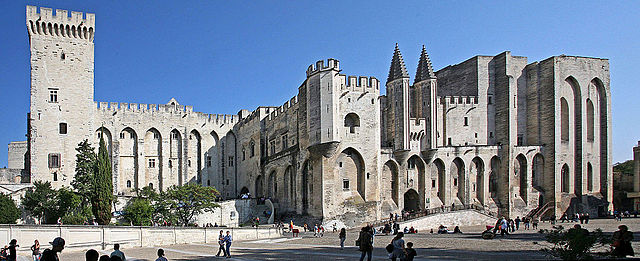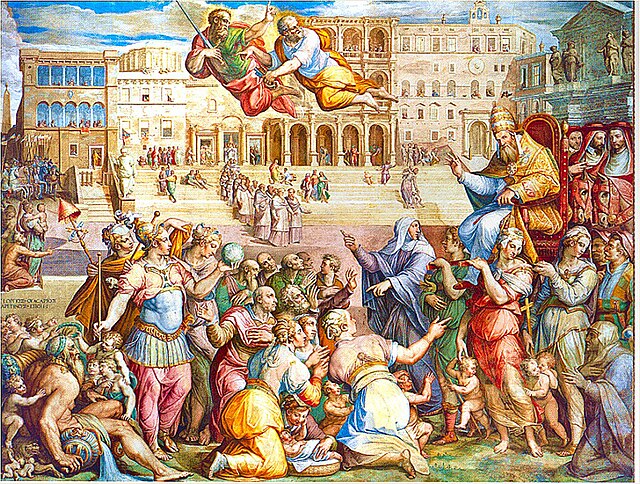Pope Benedict XII, born Jacques Fournier, was a cardinal and inquisitor, later head of the Catholic Church from 30 December 1334 to his death, in April 1342. He was the third Avignon pope and reformed monastic orders and opposed nepotism. Unable to remove his capital to Rome or Bologna, Benedict started the great palace at Avignon. He settled the beatific vision controversy of Pope John XXII with the bull Benedictus Deus, which stated that souls may attain the "fullness of the beatific vision" before the Last Judgment. Despite many diplomatic attempts with Emperor Louis IV to resolve their differences, Benedict failed to bring the Holy Roman Empire back under papal dominance. He died 25 April 1342 and was buried in Avignon.
Miniature of Benedict XII, c. 1410-12
The Avignon Papacy was the period from 1309 to 1376 during which seven successive popes resided in Avignon rather than in Rome. The situation arose from the conflict between the papacy and the French crown, culminating in the death of Pope Boniface VIII after his arrest and maltreatment by Philip IV of France. Following the subsequent death of Pope Benedict XI, Philip forced a deadlocked conclave to elect the French Clement V as pope in 1305. Clement refused to move to Rome, and in 1309 he moved his court to the papal enclave at Avignon, where it remained for the next 67 years. This absence from Rome is sometimes referred to as the "Babylonian captivity of the Papacy".
The Papal palace in Avignon, France
Pope Gregory XI returned to Rome in 1376 and ended the Avignon Papacy.



